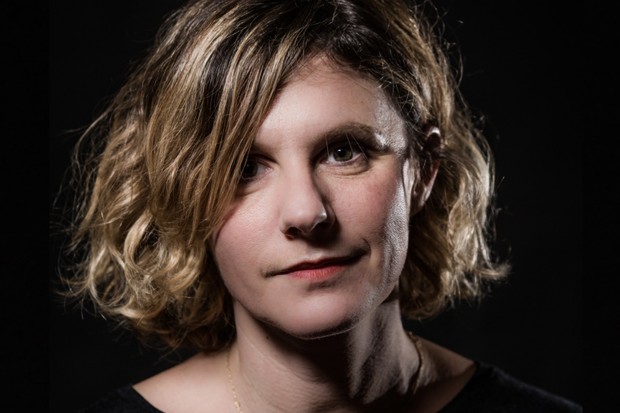Maria Bonsanti • Artistic director, Cinéma du Réel Film Festival
"What’s most important is to reflect on how reality is represented"
- We caught up with Maria Bonsanti, the artistic director of the Cinéma du Réel Film Festival, the 38th edition of which will be held in Paris from 18-27 March

Whilst documentaries are generating an increasing amount of buzz within the film industry at global level, Cineuropa met up with Maria Bonsanti, the artistic director since 2013 of the famous Cinéma du Réel Film Festival, the 38th edition of which will be held in Paris from 18-27 March, with guests including Sergueï Loznitsa, writer Orhan Pamuk, Frederik Wiseman and Nikolaus Geyrhalter.
Cineuropa: What is the editorial line and direction adopted for this year’s edition of Cinéma du Réel?
Maria Bonsanti: The question of "what do you do when you don’t have any material to film or when you can’t film" runs through the programme, through the competition as well as the parallel sections. It’s a question that’s posed directly in the "Rejouer" section, and also shines through the Focus on the national archives of Albania from the perspective of films that are censored or that tell the official version of history. This theme of "reconstruction" is also present in the Festival’s opening film, Between Fences [+see also:
film review
trailer
film profile] by Avi Mograbi, which sees migrants held in detention camps in Israel re-enact their stories. The question is also broached in the Arrested Cinema programme with Ghost Hunting, the new project currently in production by Raed Andoni, which reconstructs an interrogation centre. We also see, for example, the ability of films to work on two levels, like in Austrian film in competition The Dreamed Ones [+see also:
film review
trailer
film profile] by Ruth Beckermann, with reality manifesting in the relationship forged between two actors reading out a series of letters in a recording studio.
Is this exploration of alternative ways of reconstructing reality really a contemporary phenomenon?
More and more people are experimenting, but it’s a trend that has always existed. At the moment there’s perhaps more awareness of it among professionals and the public, most notably thanks to the work of a number of festivals. This year, for example, we have a retrospective dedicated to Italian director Franco Piavoli. The films he made during the 1980s and 90s fit in perfectly with current trends in the relationship between documentary and fiction, and feel very natural. Today, thanks to artists, there’s no doubt about it that we’re better placed to talk about this work on reality.
Documentaries also reflect the state of the world.
Current affairs obviously run through a lot of the films in the programme. Religion, dialogue around religion and persecution are, for example, at the heart of Dustur [+see also:
film review
trailer
film profile] by Marco Santarelli and Days of Futures Buddhas by Valeriy Solomin in the international competition, and Ganesh Yourself by Emmanuel Grimaud in the first films competition. But then there are other films that are, on the contrary, completely rooted in the private sphere, such as La Deuxième Nuit by Eric Pauwels, and the programme also features a series of films that place people’s private lives and collective history side by side. When it comes down to it, what’s most important is to reflect on how reality is represented.
What about the distribution of all these documentaries?
We’re working hard on this, which is why we’ve organised Paris-Doc for the last three years, a day of reflection on the distribution and circulation of documentary films, with, most notably, screenings on invitation for a very small number of professionals (20-30) who come to watch five or six films that have just been finished. It’s not about finding money for post-production, but of looking into possible distribution strategies for films. Moreover, some of the films we show in competition are released in cinemas, like last year’s A German Youth [+see also:
trailer
film profile] by Jean-Gabriel Périot and Fish Tail [+see also:
film review
trailer
film profile] by Joaquim Pinto. Souvenirs de la Géhenne, which won the competition last year, will soon be released in theatres after enjoying a good run on the festival circuit, with what is sure to be a targeted and guided distribution.
What do you think of the rise in power of documentary films at big international festivals, symbolised by Gianfranco Rosi’s victories at Venice and Berlin?
It’s very positive, and these are important signs. Festivals like Berlin are without a doubt a stronger platform than others for documentary films, and Locarno also plays a major role in this. But the victory of Sacro GRA [+see also:
film review
trailer
interview: Gianfranco Rosi
film profile] at Venice had an impact, above all in making people realise that documentaries should be recognised, as a form of film, as being just as important as other films. A lot more progress has been made in France than in other countries in this sense, but I think that festivals like Cannes, for example, still have a long way to go. More generally speaking, this phenomenon can only be a positive thing as it won’t take anything away from the festivals that have always committed themselves to documentaries and, at any rate, we’re convinced that at the moment it is these films that are producing the most interesting material.
(Translated from French)
Did you enjoy reading this article? Please subscribe to our newsletter to receive more stories like this directly in your inbox.















